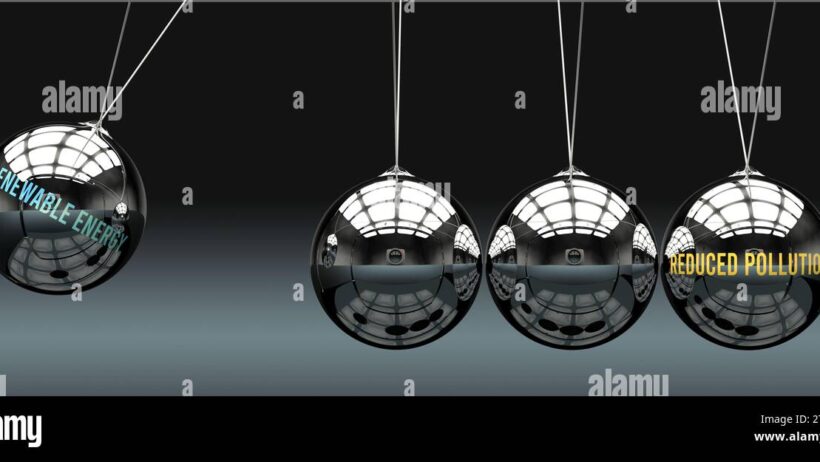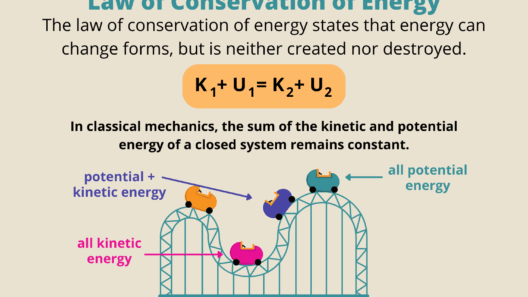Climate change is a pressing global issue that has far-reaching implications for the planet. One of the most significant contributors to climate change is pollution, particularly from energy consumption. The question arises: how much would pollution be reduced if everyone conserved energy? As we delve into this thought-provoking scenario, we can imagine the immense possibilities that a collective shift towards energy conservation could yield.
The current state of pollution is alarming. Fossil fuel combustion, which powers our vehicles, industries, and homes, releases copious amounts of greenhouse gases into the atmosphere. Carbon dioxide (CO2), methane (CH4), and nitrous oxide (N2O) are among the prime culprits. According to recent studies, the energy sector is responsible for approximately two-thirds of global greenhouse gas emissions. If individuals, households, and businesses across the globe embraced energy conservation practices, the impact could be monumental.
To comprehend the potential decrease in pollution levels, we must first recognize the ways in which energy conservation can be implemented. Simple measures, such as turning off lights when not in use or using energy-efficient appliances, can cumulatively lead to significant reductions in energy demand. More ambitious efforts, such as upgrading to renewable energy sources—solar, wind, and hydroelectric—can isolate pollution-producing processes entirely. By merging these strategies, we can visualize a future where energy use declines, and so does pollution.
Now, let’s quantify potential reductions. For instance, if all U.S. households made a concerted effort to reduce their energy consumption by just 10%, it is estimated that CO2 emissions could decline by 250 million metric tons annually. This figure is staggering; it equals the emissions produced by over 52 million cars. Imagine the collective optimism when the air quality improves, and public health sees a corresponding decline in respiratory ailments linked to pollution.
Moreover, the industrial sector presents an even more significant opportunity for pollution reduction. Many factories consume exorbitant amounts of energy, often inefficiently. Implementing energy-saving technologies and practices could lead to a reduction of around 20-30% in energy use, translating to a commensurate decrease in emissions. By fostering a culture that prioritizes sustainability, industries could not only comply with regulations but also enhance their corporate image and profitability. This dual benefit offers an enticing argument for businesses to pivot towards greener practices.
The implications of widespread energy conservation extend beyond emissions; they impact ecosystems and biodiversity. Pollution is not just an atmospheric concern; it infiltrates waterways and soil, compromising habitats and endangering wildlife. By reducing our energy footprint, we contribute to the preservation of natural habitats. For instance, fewer emissions lead to lower acid rain, which in turn helps maintain aquatic ecosystems essential for countless species. The interconnectedness of energy conservation and environmental health cannot be overstated, as these elements are woven into the fabric of our planet’s ecological balance.
Envisioning a world where energy conservation becomes commonplace sparks curiosity about societal norms and values. How would our lifestyles transform? Energy-efficient buildings could become the standard, adorned with solar panels and smart technologies that optimize power consumption. Communities could be designed around walkability and public transportation, significantly reducing reliance on fossil fuels. Citizens would likely adopt a more conscientious approach to resource consumption, fostering a culture of awareness and responsibility. Such shifts in everyday life could deepen our connection to the environment, instilling a sense of custodianship that transcends generations.
Education plays a crucial role in this transition. By embedding energy conservation principles into curricula, we can nurture environmentally conscious citizens from an early age. Schools could serve as models of sustainability, showcasing the benefits of energy-efficient practices while engaging students in hands-on projects. The allure of becoming change-makers could galvanize youth to act, leading to a vibrant movement towards energy conservation.
While the potential gains from conserving energy are immense, challenges remain, particularly in terms of policy and public perception. Government initiatives promoting renewable energy sources and supporting energy-efficient technologies are imperative. By establishing more stringent regulations on emissions and providing incentives for green technologies, policymakers can facilitate a swifter transition to a low-carbon economy.
The temptation to remain complacent, however, is a formidable barrier. Convincing individuals, especially in affluent societies where convenience reigns supreme, requires innovative outreach strategies. Engaging narratives that emphasize both the personal and collective benefits of energy conservation can catalyze action. By framing conservation as not only an environmental imperative but also an opportunity for personal empowerment and community resilience, a compelling case for change emerges.
As we further contemplate the myriad benefits of energy conservation—reduced pollution, improved air quality, and thriving ecosystems—the vision for a cleaner, healthier planet becomes clearer. Merging individual actions with collective aspirations can ignite substantial change. The excitement surrounding this possibility is not just hopeful—it is achievable.
In conclusion, envisioning a world where everyone conserves energy ignites a powerful notion: if our collective efforts can substantially curtail pollution, then the future we imagine is within reach. Embracing energy conservation is not merely a choice; it is an obligation to ourselves, to future generations, and to the planet we call home. Let us seize this moment and work towards a sustainable future, where the conservation of energy leads to a significant reduction in pollution, transforming our world for the better.








